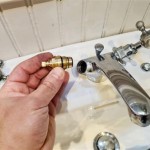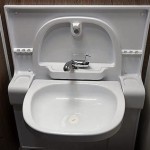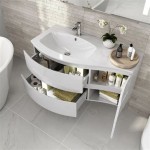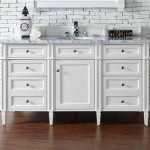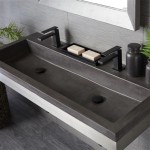What is a Good Homemade Bathroom Cleaner?
Maintaining a clean bathroom is essential for hygiene and overall home comfort. While commercially available bathroom cleaners offer convenience, they often contain harsh chemicals that can be irritating to skin and respiratory systems, and may also contribute to environmental concerns. A viable alternative is to create homemade bathroom cleaners using readily available household ingredients. The effectiveness of a good homemade bathroom cleaner depends on several factors, including the specific cleaning task, the type of surfaces involved, and the properties of the ingredients used. This article examines the components of an effective homemade bathroom cleaner and explores various formulations.
Understanding the Key Ingredients and Their Properties
A successful homemade bathroom cleaner relies on the synergistic action of several key ingredients, each contributing specific cleaning properties. Vinegar, baking soda, hydrogen peroxide, essential oils, and castile soap are among the most commonly used components. Each ingredient possesses distinct characteristics that make it suitable for different aspects of bathroom cleaning.
Vinegar, particularly white distilled vinegar, is a versatile cleaning agent due to its acidity. Acetic acid, the main component of vinegar, effectively dissolves soap scum, hard water stains, and mineral deposits. Its mildly acidic nature also makes it a natural disinfectant, inhibiting the growth of mold and mildew. However, it is important to note that vinegar should not be mixed with bleach, as this can create toxic chlorine gas.
Baking soda, or sodium bicarbonate, is a mild abrasive and deodorizer. Its slightly alkaline pH helps to neutralize acidic odors and break down grease and grime. The abrasive nature of baking soda allows for gentle scrubbing without damaging surfaces. In addition to its cleaning properties, baking soda is also an effective absorbent, helping to eliminate moisture and prevent mold growth.
Hydrogen peroxide is a powerful oxidizing agent with disinfectant and bleaching properties. When used in a 3% solution (available at most pharmacies), it effectively kills bacteria, viruses, and fungi. Hydrogen peroxide is also useful for removing stains from grout and other porous surfaces. It is important to store hydrogen peroxide in a dark bottle, as light can degrade its effectiveness.
Essential oils offer fragrance and, in some cases, antimicrobial properties. Tea tree oil, eucalyptus oil, and lavender oil are popular choices for bathroom cleaners due to their pleasant scents and potential to inhibit the growth of mold and bacteria. When using essential oils, it is crucial to dilute them properly, as undiluted essential oils can be irritating to the skin and may damage certain surfaces.
Castile soap is a vegetable-based soap that is gentle, biodegradable, and effective at cutting through grease and grime. Unlike many commercial soaps, castile soap does not contain harsh chemicals or synthetic fragrances. It is a versatile ingredient that can be used in a variety of cleaning applications, including bathroom cleaning.
Formulating Effective Homemade Bathroom Cleaners
The specific formulation of a homemade bathroom cleaner depends on the cleaning task at hand. For general cleaning, a simple mixture of vinegar and water may suffice. For more stubborn stains or mildew, a combination of baking soda and hydrogen peroxide may be necessary. Below are some specific examples of homemade bathroom cleaner formulations:
All-Purpose Bathroom Cleaner: This cleaner is suitable for cleaning sinks, countertops, and other non-porous surfaces. Mix equal parts white distilled vinegar and water in a spray bottle. Add a few drops of essential oil for fragrance, if desired. Spray the solution onto the surface and wipe clean with a microfiber cloth.
Toilet Bowl Cleaner: Baking soda and vinegar work synergistically to clean and deodorize toilet bowls. Pour one cup of baking soda into the toilet bowl, followed by two cups of white distilled vinegar. The mixture will fizz, which helps to loosen stains and grime. Let the mixture sit for 30 minutes, then scrub with a toilet brush and flush.
Shower and Tub Cleaner: Soap scum and hard water stains can be challenging to remove from showers and tubs. A mixture of vinegar and dish soap can effectively tackle these issues. Heat one cup of white distilled vinegar in the microwave for a few minutes (until warm, but not boiling). Pour the warm vinegar into a spray bottle and add one cup of dish soap. Gently swirl to combine (avoid shaking vigorously, as this can create excessive suds). Spray the solution onto the shower and tub surfaces and let it sit for 30 minutes. Then, scrub with a sponge or brush and rinse with water.
Grout Cleaner: Grout between tiles is prone to staining and mildew growth. A paste of baking soda and hydrogen peroxide can help to clean and brighten grout. Mix baking soda and hydrogen peroxide into a thick paste. Apply the paste to the grout and let it sit for 15-20 minutes. Scrub with a grout brush or old toothbrush and rinse with water.
Mold and Mildew Remover: For areas affected by mold and mildew, hydrogen peroxide or tea tree oil can be used. Spray undiluted 3% hydrogen peroxide onto the affected area and let it sit for 10-15 minutes. Wipe clean with a damp cloth. Alternatively, mix a few drops of tea tree oil with water in a spray bottle. Spray the solution onto the affected area and let it sit for 30 minutes. Wipe clean with a damp cloth. Note that hydrogen peroxide may have a bleaching effect, so test it on an inconspicuous area first.
Glass and Mirror Cleaner: A simple solution of vinegar and water can effectively clean glass and mirrors. Mix equal parts white distilled vinegar and water in a spray bottle. Spray the solution onto the glass or mirror and wipe clean with a microfiber cloth. For streak-free results, use a clean, dry microfiber cloth.
Considerations for Safe and Effective Use
While homemade bathroom cleaners are generally safer than commercial cleaners, it is important to take certain precautions to ensure safe and effective use. Always test the cleaner on an inconspicuous area before applying it to the entire surface, especially when using acidic or abrasive ingredients like vinegar, hydrogen peroxide or baking soda. This will help to prevent damage or discoloration.
Never mix vinegar with bleach, as this can create toxic chlorine gas. Similarly, avoid mixing ammonia-based cleaners with bleach. Always store homemade cleaners in properly labeled containers and keep them out of reach of children and pets.
When cleaning with homemade solutions, ensure adequate ventilation to avoid inhaling concentrated fumes. Open windows or use a fan to circulate air in the bathroom. Wear gloves to protect your skin from irritation, especially when using vinegar, hydrogen peroxide, or essential oils.
The effectiveness of homemade cleaners can vary depending on the specific ingredients used and the severity of the cleaning task. For heavily soiled or stained areas, it may be necessary to repeat the cleaning process or use a more concentrated solution. Regular cleaning is essential to prevent the buildup of grime and mildew, making it easier to maintain a clean and sanitary bathroom.
Certain surfaces may be sensitive to specific homemade cleaning agents. For example, granite and marble countertops can be damaged by acidic cleaners like vinegar. It is important to research the specific cleaning requirements of different surfaces before using any homemade cleaner.
Consider the environmental impact of the ingredients used in homemade bathroom cleaners. Opt for biodegradable and sustainable ingredients whenever possible. Castile soap is a good example of an environmentally friendly cleaning agent. Properly dispose of any leftover solutions or cleaning materials to minimize environmental contamination.
The integration of homemade bathroom cleaners into a regular cleaning routine can significantly reduce the exposure to potentially harmful chemicals found in commercial products. By understanding the properties of readily available household ingredients and formulating effective cleaning solutions, individuals can achieve a clean and healthy bathroom environment while minimizing environmental impact.

5 Awesome Homemade Bathroom Cleaner Recipes Spend With Pennies

Inexpensive Diy Homemade Bathroom Cleaner Thrifty Frugal Mom

Homemade Bathroom Cleaners My Frugal Adventures

Diy Shower Cleaner A Powerful Homemade Solution

Non Toxic Diy Bathroom Cleaner Recipes Mom 4 Real

Homemade Shower Cleaner One Essential Community

Homemade Daily Shower Cleaner Spray

Simple Shower And Tub Cleaner Joyful Homemaking

The Best Homemade Soap Scum Remover Sarah Ever After

8 Simple Diy Bathroom Cleaners Free Printable Clean Mama
